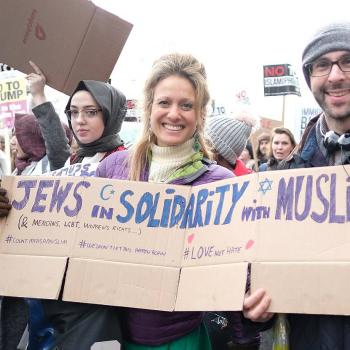 |
|
It’s for your own good
|
How does a woman in an abaya prove her identity to government authorities? Refused the right to drive, how does she get to work? When faced with a medical emergency, how does she ask for medical attention?
The disturbing answers to some of these questions are provided in a new report issued by Human Rights Watch entitled “Perpetual Minor: Human Rights Abuses Stemming from Gender Segregation and Male Guardianship Laws in Saudi Arabia“.
The report details how the Saudi state has interpreted verse 4:34 of the Holy Quran to its own advantage to create deeply discriminatory and abusive administrative structures that treat women as incapable of making their own decisions and relegates them to the meagre rights deemed “suitable to their nature”.
Traversing a vast variety of areas, from educational policy to health policy and legal proceedings, the report, relying on hundreds of interviews of Saudi women as well as Muslim scholars, depicts how the Saudi state ignores the progressive and egalitarian aspects of Islamic law and uses out of date interpretations of religious texts to justify oppression.
A Saudi woman is not only prohibited from driving but may not leave an educational institution without proving that her transportation is provided by a mahram. She may often be refused a medical procedure (particularly if it relates to her reproductive organs) without the written permission of a mahram. Indeed, without a mahram, she may not leave an abusive situation, file legal papers, give testimony in court or travel outside the country.
Ironically, while prohibited from making legal decisions of her own, Saudi women are nonetheless responsible for the crimes they may commit: in other words, a Saudi woman is considered legally incapable of filing court papers to contest a contract but fully responsible for having violated a contract if she is a party to it via a male guardian.
Of particular note is the report’s emphasis on the consequences of such laws. As one Saudi entrepreneur noted, Saudi women lose out on jobs because the lack of ability to transport means they require higher salaries to offset the transportation costs of hiring a driver. The necessity of taking a ma’arif (or someone who can verify identity) every time a Saudi woman visits a government office means that without the co-operation of male relatives Saudi women are denied access to government services.
Equally heinous is the fact that even when facing emergency situations, Saudi women may be denied medical care if they do not provide the required written permission slip (in one case a Saudi woman whose sister needed an IV reports getting a permission slip from their driver). In case of medical care, the law on the books denies the need for such permission, yet in practice many hospital administrators still require it for fear of aggravating male guardians who were not duly informed.
Pregnancy is an even more complicated affair; in the words of a clinical psychologist “if a pregnant woman comes to the hospital with her guardian, she can leave with anyone, but if she comes without a guardian it becomes a police case and she cannot leave: she has to remain here until a guardian comes to get her.”
Saudi Arabia, being the religious centre of Muslims, has long promoted itself as the definitive voice of the “correct” interpretation of Islam for the rest of the Muslim world, and here lie the wider consequences of the Saudi state’s practice of using Islam to justify gender apartheid.
A vast number of noted Muslim jurists have emphasised the inapplicability of such edicts regarding women. In the words of Dr A A Abdulhai, a professor at the King Saud University in Saudi Arabia, the whole concept of “guardianship” over women was linked to an era where there was insecurity; such an era does not exist any more since security is provided by the existence of government institutions making the concept of “guardianship” outdated even in Islamic law.
Furthermore, according to Islamic scholars, the Hanbali mazhab (which is the official mazhab of Saudi Arabia) provides no definitive basis to discriminate between men and women based on legal capacity. In the words of Muhammad Fadel, a professor of Islamic law quoted in the report, “any restrictions in Saudi law or custom which prevent women from exercising their legal rights is a matter of political will and not strict adherence to Hanbali law.”
The political impact of the draconian Saudi gender laws spreads far across the Muslim world based not only on the Saudi sense of entitlement emanating from being home to Islam’s holy sites but equally on their economic superiority as an oil-producing nation. Hundreds of thousands of Pakistani migrant workers in Saudi Arabia are duped into imitating the Saudi version of Islam and bring back repugnant gender stereotypes of female inferiority to Pakistan.
The Pakistani diaspora in places like Jeddah and Riyadh is an excellent example of how Muslims are being indoctrinated into a backward definition of gender roles by Saudi authorities. In their eagerness to be “Saudi”, migrant workers are made to believe that aspects of their moderate interpretations of Islam that do not ascribe to similar gender segregation do not meet the correct criteria of Islam and are thus worthy only of denigration.
As labour exporters to Saudi Arabia and as citizens of one of the most populous Muslim countries in the world, Pakistanis need to question the assumed superiority of Saudis as definers of the Islamic faith. An essential part of this endeavour is the ability to see how the Saudi state has manipulated Islam and used the economic superiority of its oil wealth to justify oppression of women.
Indeed, the Saudi veil of piety hides behind it a monarchical state with little respect for the dignity and equality of all human beings so firmly advocated by Islam: it must not be allowed to use its oil dollars to purchase the right to define Islam for the rest of the world’s Muslims.
(Photo: Anduze Traveller via flickr under a Creative Commons license)
Rafia Zakaria is associate editor of altmuslim.com and an attorney and member of the Asian American Network Against Abuse of Women. She teaches courses on constitutional law and political philosophy. This article previously appeared in Daily Times (Pakistan).















